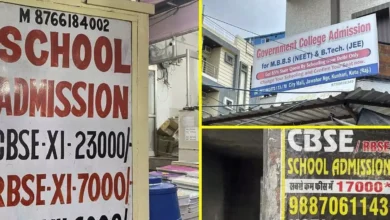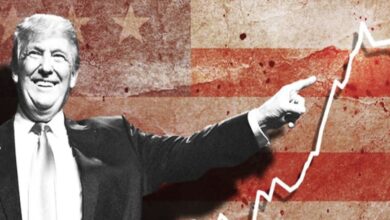Reliance JIO announcing ICO, with no clear regulation, practical application or usage of these coins, what can India brace for?
Every time you reload the web browser, there’s something new about cryptocurrency. The highly dynamic and virtual currencies of the digital era are driving volatility in wealth creation and creating billionaires out of nerdy computer programmers. Read Forbes List of Richest People in Cryptocurrency. While there’s only a handful of such billionaire ‘whales’ out there in the world, the story of cryptocurrency, BlockChain and ICOs in India is still at a preamble level, here’s why.
As a country, we are risk averse when it comes to money, we are wired to save, and spend less, we prefer to invest in sovereign promise (gold, land) and being thrifty as a way of life is not just accepted but appreciated. Indians prefer fixed deposits to equities, MFs for investment: Sebi Survey. Investing in equities is considered as gambling. All the above virtues are in stock contrast when it comes to dealing with the likes of Bitcoins and Ethereum – they are virtual, volatile, intangible and highly risky with no sovereign promise of any returns.
As recent as first week of February 2018, when our capital markets were going through a rough wave, the search for ‘buy gold’ went up on Google search, if this is any indicator of our sentiments towards volatility, then the bulk majority of Indians sure can’t stomach the risk of trading in cryptocurrencies albeit the government and taxmen are yet to make up any concrete framework or regulations. So, will cryptocurrencies like bitcoin bring in the promised acche din to Indian financial landscape? That’s a resolute No. In a nation where online transaction warrants a secondary security measure of OPT to protect gullible people, combined with any singular principles set up by the state, we are very rigid for cryptocurrency to percolate into our economy anytime soon.
All cryptocurrency are BlockChain, but not all BlockChain are…
The blockchain is self-sustaining, peer to peer distributed database ledger technology for managing and recording transactions with no central regulatory and ownership involvement. It is like an online bank ledger, open to both parties in a transaction. Blockchain gained increasing importance because of its relevance in facilitating a single shared version of the truth for any digital asset. Any problem area that has more than one participant transacting assets, and their processes are unexposed and governed within their territories is a good candidate for blockchain. E.g., an online shopping service that relies upon multiple organization like suppliers, warehouses, shippers can implement a blockchain solution to build a secured communication channel for efficiently performing track and trace of a consignment.
Instances of its application include patient-centric health care, where the patients are connected to devices for real-time monitoring. Online repository of educational certificates, automated legal contracts, are some other forums where blockchain is also used. With the huge wave of digitisation in our country, and Digital India being the government’s motto, blockchain is emerging as the new hero on Indian scene. By categorically reiterating that cryptocurrencies could not be part of the ‘payment process’, India buries the economic possibilities of crypto as a currency. However, the positive focus on blockchain technology is redeeming. Read more Budget 2018: Bitcoin in India is Dead. Long Live Blockchain
With the foundation of blockchain, some in the financial sector want to build on the superstructure with advanced cryptocurrency mechanisms like ICOs.
Understanding ICOs
Initial Coin Offering (ICO) means that someone offers investors some units of a new cryptocurrency or crypto-token in exchange against cryptocurrencies like Bitcoin or Ethereum. Since 2013 ICOs are often used to fund the development of new cryptocurrencies. The pre-created token can be easily sold and traded on all cryptocurrency exchanges if there is demand for them. An ICO is largely similar to an IPO (initial public offering), but it differs to the extent that instead of offering shares in a company, cryptocurrencies or crypto-tokens are offered at a predetermined rate.
These crypto-tokens are basically digital assets. There are a method of payment for the service that the company proposes to offer. Examples of such services may include online music/movie- streaming services or cloud storage space. Reliance Jio announcing its own ICO called ‘Jio Coin’ created some buzz but that’s where it ends. The US Securities and Exchange Commission and the Canadian Securities Administrators, on the other hand, have released investor bulletins highlighting that some ICOs may need to be categorized as securities in accordance with the nature of the crypto-token offered.
However, in order to streamline and regulate ICOs in India, there are legal and regulatory challenges that need to be addressed. First, based on their nature, crypto-tokens/cryptocurrencies could be classified as securities or currency or a payment system or intangible property. Additionally, the hybrid nature of crypto-tokens might require coordination among the Securities and Exchange Board of India (Sebi), the Reserve Bank of India (RBI) and other sectoral regulators for effective regulatory oversight. There are 10 cryptocurrency exchanges with five million users and monthly volumes of Rs10,000 crore ($1.5 billion) in India, according to industry estimates from early January. Read more 100,000 Indian cryptocurrency investors are now on the taxman’s radar
In India, there is regulatory opaqueness surrounding the regulation of ICOs (and other similarly placed emerging fintech products). One can see that the triad of these three jargons is nothing but a pyramid of niche technology that goes from macro application of blockchain to micro regulation of bitcoins and ICOs. How these technologies play out in India will depend on the feasibility of their regulation and the extent of their service to financial inclusion which is the bedrock of Indian economy today.






